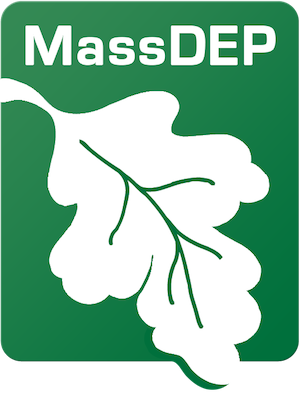Weymouth Adopts New Recycling Guidelines to Quell Rising Costs

Weymouth, MA – As the cost of recycling continues to rise for Massachusetts’ municipalities, Weymouth has adopted new recycling guidelines for 2018. These guidelines outline what materials are considered non-recyclable or banned according to Massachusetts Department of Environmental Protection (MassDEP) regulations.
Under the current recycling contract with the facility that receives the recyclable material, Waste Management, the town is allowed a contamination limit of up to 10% of the total recycling tonnage. In recent months, recycling audits have revealed that banned materials account for nearly 30% of total recycling tonnage. The Town must pay an additional fee when the percentage of unallowable materials, or contamination, exceeds 10% of the total tonnage of recycled materials. Contamination in excess of 10% will result in a recycling fee more than two times the regular fee charged per ton.
The MassDEP state mandate and subsequent cost increases are due, in part, to a recent worldwide ban China, one of the world’s largest recycling markets, has imposed on the import of scrap paper and plastic. These restrictions were implemented in 2018 and have resulted in a trickle-down effect in which localities ultimately absorb the additional cost to recycle the unallowable papers, plastics, and other materials.
Despite these changes in the market and the DEP regulations, Mayor Hedlund’s administration has worked hard to reduce waste disposal costs borne by the tax payers. “We recognize that outside factors influencing the market coupled with state regulations have resulted in new restrictions on recyclable materials”, said Mayor Hedlund. “As a response to this, we are working to educate residents about allowable recyclables through mailers and our Department of Public Works as well as continuing to maintain a low trash fee so the residents are not burdened by these market-related changes.”
The trash fee has not been increased despite these changes to the recycling operations, and the additional expenses associated with waste disposal have been absorbed by the Town’s general fund thanks to other financial measures and fiscal responsibility practiced by the Town. This year, Weymouth was able to negotiate a long-term waste disposal contract with trash vendor EZ Disposal Service, Inc. for up to 10 years with options to renew. EZ Disposal serves as the Town’s hauler for both trash and recycling. The favorable terms negotiated in this contract have allowed the Town to lock in a rate that will not overburden the taxpayer as costs continue to rise due to outside forces.
The current trash fee is $100 for single family homes and $200 for multi-family homes, billed quarterly over the fiscal year. However, the revenue from trash fees accounts for less than 40% of the total expenses to dispose of the town’s waste and recycling. This year, waste disposal expenses are estimated to be about $5.47 million while trash fee revenue is estimated to be only $1.75 million or 32% of the total cost. This means the Town’s annual operating revenue will pay for the majority of the cost of waste disposal. To keep prices low and maintain a favorable trash fee, the Town is working with EZ Disposal to prevent contamination of acceptable, recyclable materials in the trash.
In addition to the town-wide mailer that was distributed to residents, Weymouth will implement a recycling inspection program in which curbside pick-up will be inspected to ensure non-recyclable materials are not included. Examples of banned materials that are considered non-recyclable include:
- Plastic Bags
- Plastic Wrapping Material
- Plastic plates, bowls, or cutlery
- Paper Goods (plates, bowls, towels)
- Aerosol cans
- Electronics
- Wood
- Scrap Metal
- Styrofoam
- Juice & food cartons
Residents may contact the Mayor’s Office or the Weymouth DPW with questions regarding recyclable materials. To learn more about alternative recycling options for banned materials, view the New Recycling Guidelines or visit the Town of Weymouth’s Trash/Recycling page. To find out which common items can or cannot be recycled, check out MassDEP’s Can I Recycle This? page.

